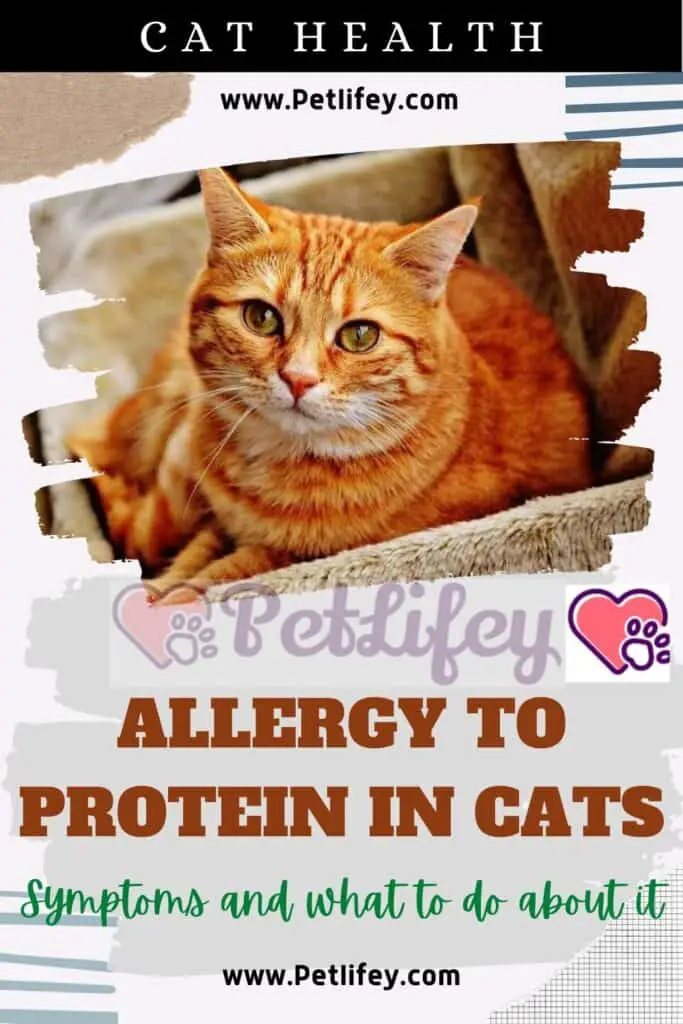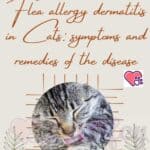A protein allergy in cats can occur both if Kitty eats commercial food and if she eats homemade food. Let’s see what it is.

It is well known that nutrition is a very important factor for the health of a four-legged friend. For this reason it is necessary to pay attention to what is good and what is bad for the cat’s body.
Protein allergy is a condition that arises when our beloved feline becomes sensitive to the protein sources of his food, whether it is homemade or commercial. But let’s delve into the topic below.
Allergy to proteins in cats: causes and symptoms

When the mast cells that make up the immune system of our four-legged friend overreact to a certain protein, a protein allergy occurs in the cat.
This is because the main role of mast cells is to protect the cat’s body from microbes. There are many proteins that can cause allergies in our furry friend : beef, lamb, chicken, eggs, dairy products.
When our four-legged friend has an allergy to one of the proteins in the food he eats, he may have the following symptoms:
- Skin rashes
- Loss of hair
- Skin blisters
- Skin ulcerations
- Swollen face
- Inflammation in the paws
- Cough in cats
- Breathing problems
- Feline urticarial
In addition, our beloved cat may excessively lick or bite itself.
Allergy to proteins in cats: diagnosis and treatment
If the cat exhibits the symptoms listed in the previous paragraph, it is advisable to take him to the vet.
The latter through your information, i.e. the observed symptoms, the time of the presence of symptoms, and information on the cat’s diet, will be able to diagnose the allergy in the feline .
In addition, the specialist will carry out a complete physical examination to the cat and to rule out other diseases, the veterinarian could carry out a blood test, and an analysis of the feline‘s skin, to highlight the presence of any bacteria. Finally, to determine the protein that causes cat allergy, your vet will recommend an elimination diet.
Once the protein is discovered, it will be eliminated from the feline’s diet and with the help of the specialist, our furry friend will have a diet that meets its nutritional needs without having any allergic reactions. In addition, the specialist, to relieve the symptoms of allergy in the cat, could prescribe antihistamines or corticosteroids for the cat to relieve itching and inflammation.






